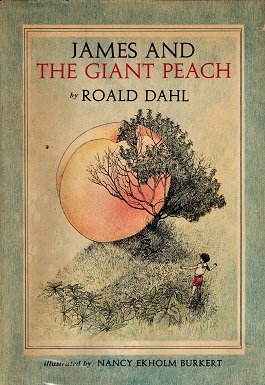John Steinbeck
Explore the significant events in the life and career of John Steinbeck, the renowned American author. This timeline details key milestones from his birth and education to his literary achievements and enduring legacy.
Birth of John Steinbeck
John Ernst Steinbeck Jr. was born on February 27, 1902, in Salinas, California. He was the third of four children and the only son of John Ernst Steinbeck Sr. and Olive Hamilton Steinbeck. His birthplace, Salinas Valley, and the Californian landscape would later become central to his novels, influencing the settings and themes of his works, including 'East of Eden' and 'Of Mice and Men.' Steinbeck would go on to become one of America's most celebrated authors, winning the Nobel Prize in Literature in 1962.
Publication of 'Of Mice and Men'
'Of Mice and Men,' a novella written by John Steinbeck, was published on February 6, 1937. The story is set during the Great Depression and explores themes of friendship, loneliness, and the American Dream through the lives of two displaced ranch workers, George Milton and Lennie Small. The novella was critically acclaimed and cemented Steinbeck's reputation as one of America's leading writers. It also became a popular choice for adaptations in theater and film, showcasing Steinbeck's ability to blend powerful storytelling with deep social commentary.
Publication of 'The Grapes of Wrath'
John Steinbeck's novel 'The Grapes of Wrath' was published on April 14, 1939. The book is a seminal work of American literature, depicting the plight of the Joad family as they journey from the Oklahoma Dust Bowl to California in search of a better life during the Great Depression. The novel won the National Book Award and the Pulitzer Prize for Fiction in 1940. It was praised for its powerful portrayal of the struggles faced by migrant workers and its critique of social injustice, contributing to Steinbeck's status as a social novelist.
Winning the Pulitzer Prize for 'The Grapes of Wrath'
John Steinbeck was awarded the Pulitzer Prize for Fiction on February 27, 1940, for his novel 'The Grapes of Wrath.' This recognition marked a significant achievement in Steinbeck's career and underscored the novel's impact in both the literary world and society at large. 'The Grapes of Wrath' highlighted the economic injustice and challenges faced by American farmers during the Great Depression, resonating with readers and critics alike. The Pulitzer Prize further solidified Steinbeck's reputation as a prominent voice in American literature and a champion of the underdog.
Death of Steinbeck's close friend, Ed Ricketts
Edward F. Ricketts, a close friend and important influence on John Steinbeck, died on May 8, 1948. Ricketts was a marine biologist whose philosophical views deeply influenced Steinbeck's writing, particularly the themes of ecological interdependence and community present in works like 'Cannery Row' and 'The Log from the Sea of Cortez.' His death was a profound personal loss for Steinbeck, who commemorated their friendship in his writings. Ricketts' passing marked the end of a significant chapter in Steinbeck's life and deeply affected his later works.
Publication of 'East of Eden'
John Steinbeck's novel 'East of Eden' was published on September 19, 1952. The novel is a sweeping family saga set in the Salinas Valley, which tells the lives of two families, the Trasks and the Hamiltons, over several generations. Steinbeck considered 'East of Eden' to be his magnum opus, incorporating themes of good and evil, familial conflict, and redemption. The book explores the author's own family history and also delves into biblical allegories, making it one of Steinbeck's most complex and ambitious works.
Awarded the Nobel Prize in Literature
On October 25, 1962, John Steinbeck was awarded the Nobel Prize in Literature for his realistic and imaginative writings, distinguished by a sympathetic humor and a keen social perception. The award recognized his outstanding contribution to American literature, honoring works like 'The Grapes of Wrath,' 'Of Mice and Men,' and 'East of Eden.' Steinbeck's award was met with acclaim and some controversy, as critics were divided on his literary merits. Nonetheless, the Nobel Prize solidified his legacy as one of America's preeminent authors.
Awarded the Presidential Medal of Freedom
John Steinbeck received the Presidential Medal of Freedom on September 10, 1964, from President Lyndon B. Johnson. This prestigious award recognized Steinbeck's contributions to American culture and literature, acknowledging his influence as a writer who shed light on themes of social and economic issues through his storytelling. The award underscored Steinbeck's role as a cultural ambassador and his ability to capture the struggles and aspirations of common people, reinforcing his status as a literary luminary.
Publication of 'America and Americans'
'America and Americans,' a collection of essays by John Steinbeck, was published on December 10, 1966. The book compiled Steinbeck's reflections on American society, culture, and identity, addressing the country's social and moral issues with insight and wit. Through these essays, Steinbeck explored topics such as racism, inequality, and the American Dream, providing a critical yet hopeful perspective on the nation's challenges and potential. The work further exemplified Steinbeck's keen social awareness and his enduring contribution to American literature.
Death of John Steinbeck
John Steinbeck passed away on December 20, 1968, in New York City, at the age of 66, after suffering from heart disease. His death marked the end of a remarkable career that spanned over four decades, during which he had written 27 books, including 16 novels, six non-fiction books, and five short story collections. Steinbeck's works continue to resonate for their depictions of humanity and social justice. His legacy as a literary giant endures, having left an indelible impact on literature and society.
Frequently asked questions about John Steinbeck
Discover commonly asked questions regarding John Steinbeck. If there are any questions we may have overlooked, please let us know.
What is John Steinbeck's most famous work?
When was John Steinbeck born?
When did John Steinbeck pass away?
When did John Steinbeck win the Nobel Prize in Literature?
Related timelines
More timelines connected to John Steinbeck







